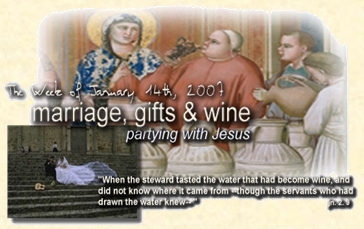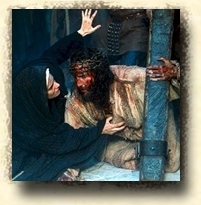Topic: Neo Liturgical Praxis
Meditation:“Now concerning spiritual gifts, brothers and sisters, I do not want you to be uninformed. You know that when you were pagans, you were enticed and led astray to idols that could not speak.” (1 cor. 12 .1--2)
 How may of you have an “idol” in your home? The Christian landscape is diverse in its definitions, ranging from Christmas Trees, Victorian Cherubs and Santa Clause, to the movies, music and entertainment we prefer. (Incidentally, I have all of these.) The apostle didn’t have these things in mind when addressing his brethren in Corinth, he was talking about literal wooden carvings, kept to appease testy spirits and/or fickle gods who acted as though they were little more than children. He was also drawing a comparison, that acting as though there are “gifts” that would set those possessing such gifts, over others in the church, is tantamount to dumb idol worship. Abilities were given by God to individuals in order to benefit others (for the “Common Good”) as a “Gift,” making the Family complete.
How may of you have an “idol” in your home? The Christian landscape is diverse in its definitions, ranging from Christmas Trees, Victorian Cherubs and Santa Clause, to the movies, music and entertainment we prefer. (Incidentally, I have all of these.) The apostle didn’t have these things in mind when addressing his brethren in Corinth, he was talking about literal wooden carvings, kept to appease testy spirits and/or fickle gods who acted as though they were little more than children. He was also drawing a comparison, that acting as though there are “gifts” that would set those possessing such gifts, over others in the church, is tantamount to dumb idol worship. Abilities were given by God to individuals in order to benefit others (for the “Common Good”) as a “Gift,” making the Family complete.
I love weddings. I really enjoy weddings that I know will last. You know, where the couple is more devoted to Christ—even more than each other. I just performed a wedding a few months ago where I had this certainty, knowing the family story and being a privileged witness to much of their history as they journey along life’s road. It is just satisfying to sit back into the comfort and confidence of knowing that the family will survive. The things that their parents poured into them will continue; the “Name” and their “Ways” will go on...
Marriage is not easy though… We fool ourselves if we believe that commitment is only as good as one’s first failure—or some glaring failure that we would never have expected. Commitment is holding fast for the other person when there is failure. In this commitment is safety, and hope that the family will go on, no matter what; children will come and learn our Ways and we will continue to be a people—a legacy remaining in the world.
Our Lectionary reading from 1 Corinthians chapter 12 tell us that everyone contributes weather they know it or not, with gifts given buy the Spirit for “the common good,” in helping us to live in this family, safely and dependent, (Yes! Dependent…) not one being better than the next. All the gifts make the family complete—not “idol worshipers,” but worshipers of the One True God.
We are imperfect if we are family with only those who share the same gifts. It is dangerous and creates cast systems that make us nothing more than idol worshippers.
Today within God’s church, Sunday morning is the most segregated day of all, as we all worship the same God, with only those who are like us—those who have the same “gifts.”
Who do you worship with…? Who are your exclusive friends? Do they have homes like yours? Are your incomes similar? Do you read the same books? Watch the same TV shows? Drink the same beer? Do they have a home? Are they mentally ill? Are they the same color, or the same age? Are you complacently isolated from the real gifts of diversity? Hmmmm…
In God’s family, we are all adopted family members; people transformed into a New Way of being human. Truly human as we are immersed into God’s family; taking on His qualities, passing on the Hope of this New Way, and in our being Christian, becoming cup bearers of the best wine at the human party.
The price of admission; humility, servitude and a desire to follow…
Jesus throws a Great Party!
Reflection: The Wedding at Cana is a beautiful picture of three essential qualities of Christian discipleship: bringing new life, radical commitment, and transformation of humanity. Are we willing to believe that, like the wine in a grape, we have the inherent ability to be a sacramental presence in the world?
The early Christian community had to decide, often, what it meant to be Christian. As part of this journey, Paul cautioned the Corinthians to value every gift, every person, and every contribution to the community: Teaching was as important as administration, and public visibility was as important as private consecration.
Are we a people of self consecration or people of sacramental trusting.
Consider: How comfortable are we in our Christian disciplines to our own edification only? As vessels –or holy grails– where can we invest ourselves as visible sacraments—vessels, containing the new wine of God’s community, and how does this affect our “Living with Jesus” today...?



 nearer to Him, but this joy is very conflicted. There is a terrible agony realizing the deadly seriousness of God’s love for us. The physical pain that Jesus endured is emotionally painful for us as we realize the physical cost; but as we draw near to the end of our “Lenten Desert,” our heightened awareness and sensitivity to the spiritual seriousness of our lack of “acceptance” of God and His priority in our lives; our consideration of Him and His mission, is staggering.
nearer to Him, but this joy is very conflicted. There is a terrible agony realizing the deadly seriousness of God’s love for us. The physical pain that Jesus endured is emotionally painful for us as we realize the physical cost; but as we draw near to the end of our “Lenten Desert,” our heightened awareness and sensitivity to the spiritual seriousness of our lack of “acceptance” of God and His priority in our lives; our consideration of Him and His mission, is staggering.